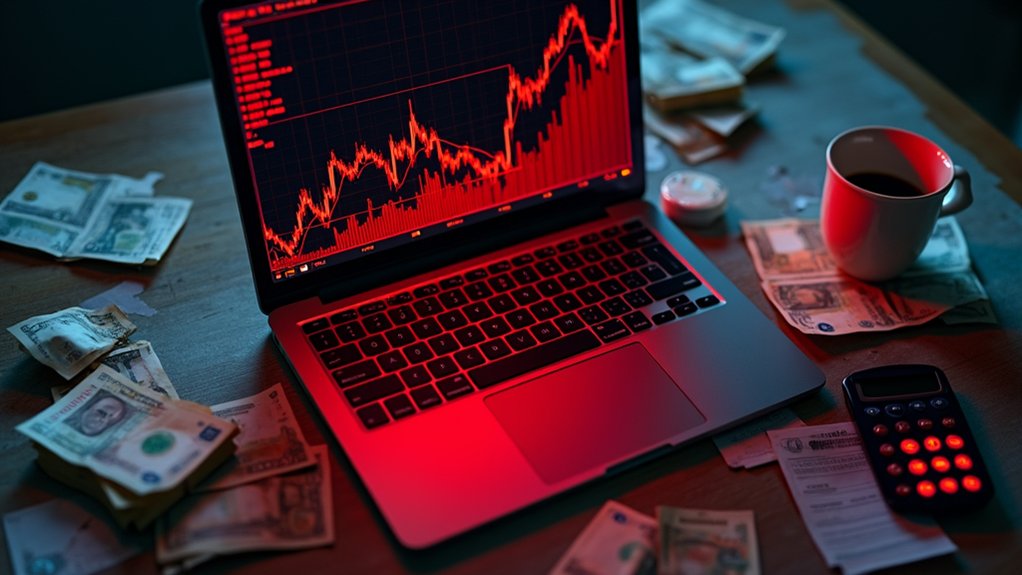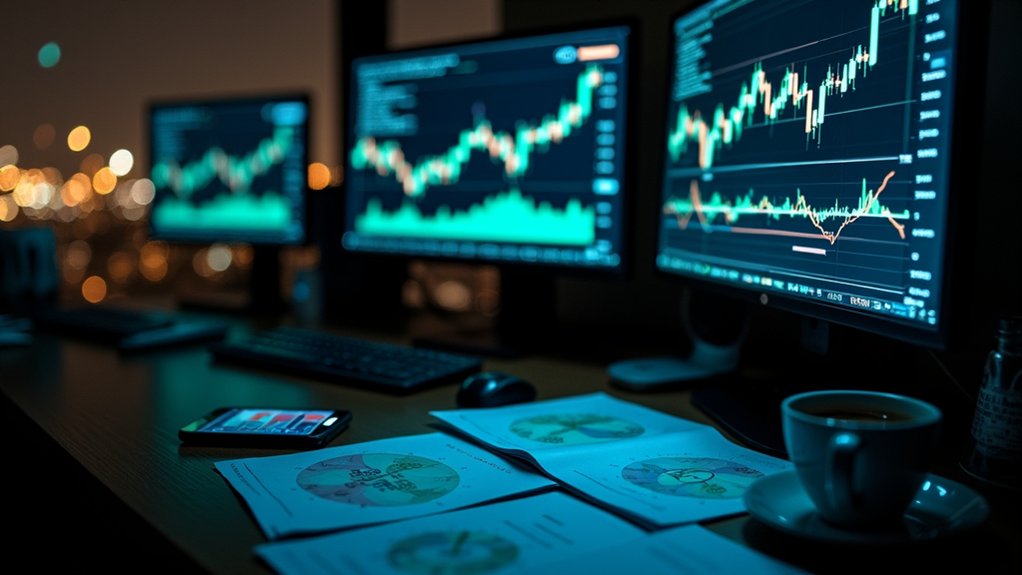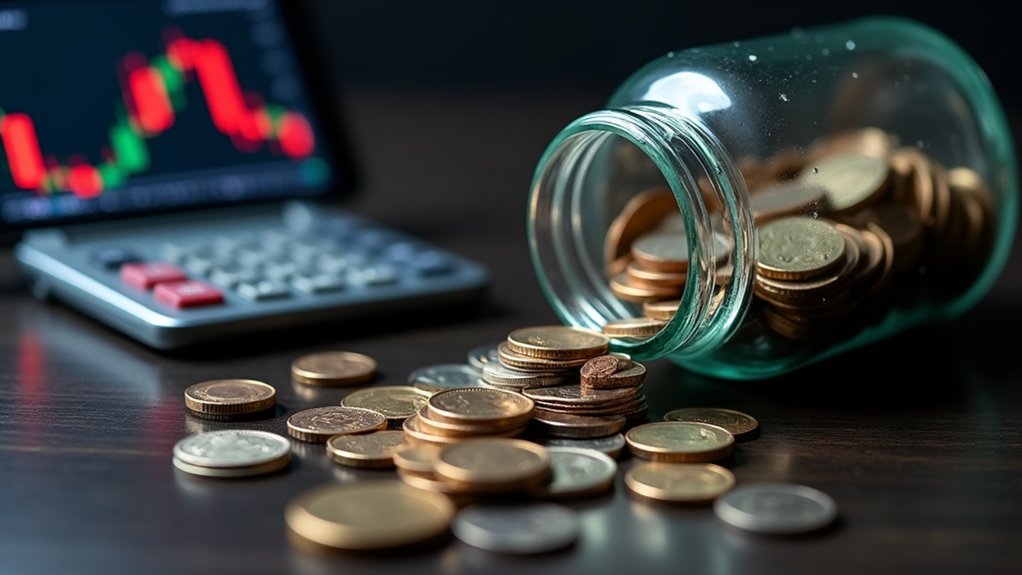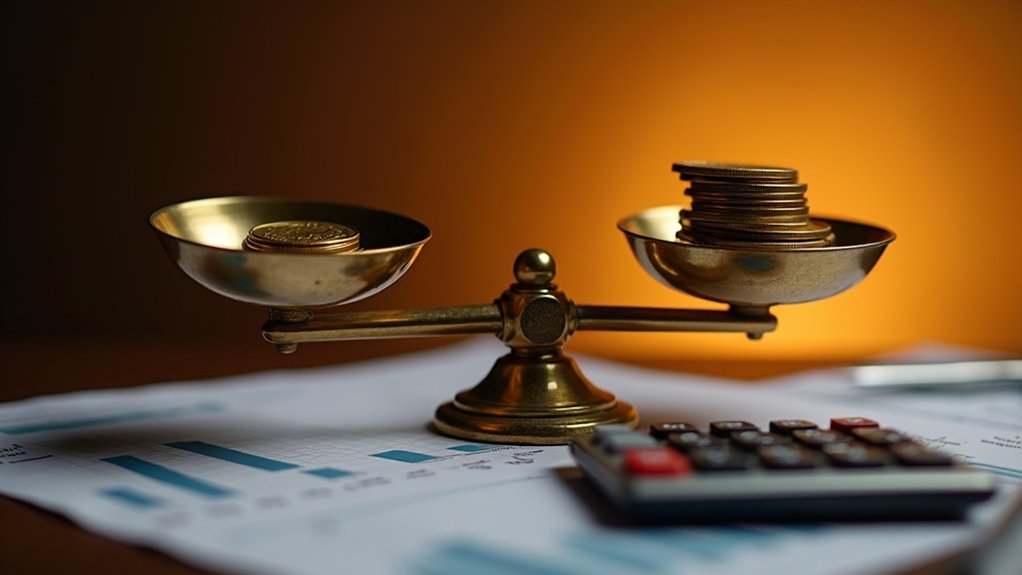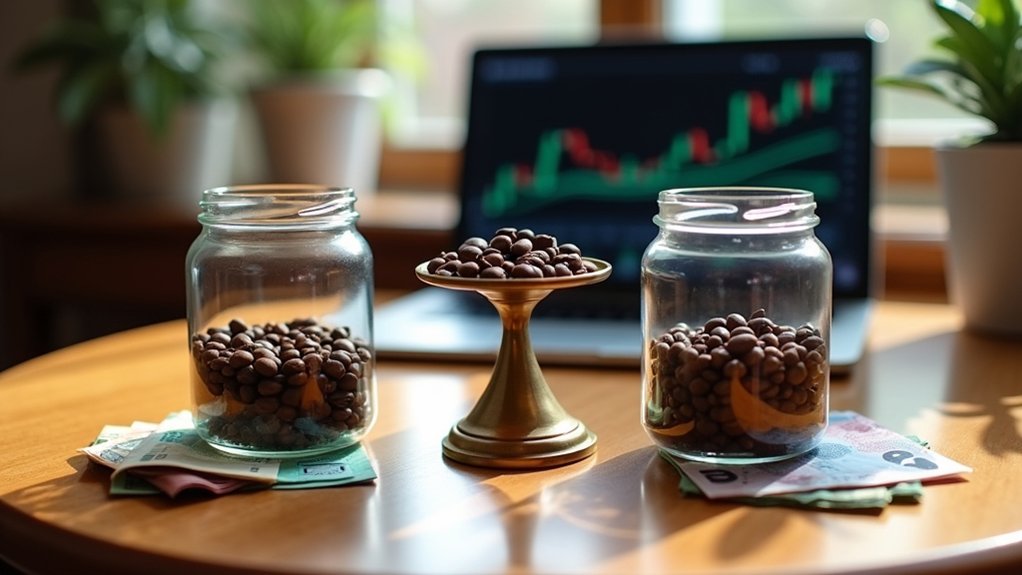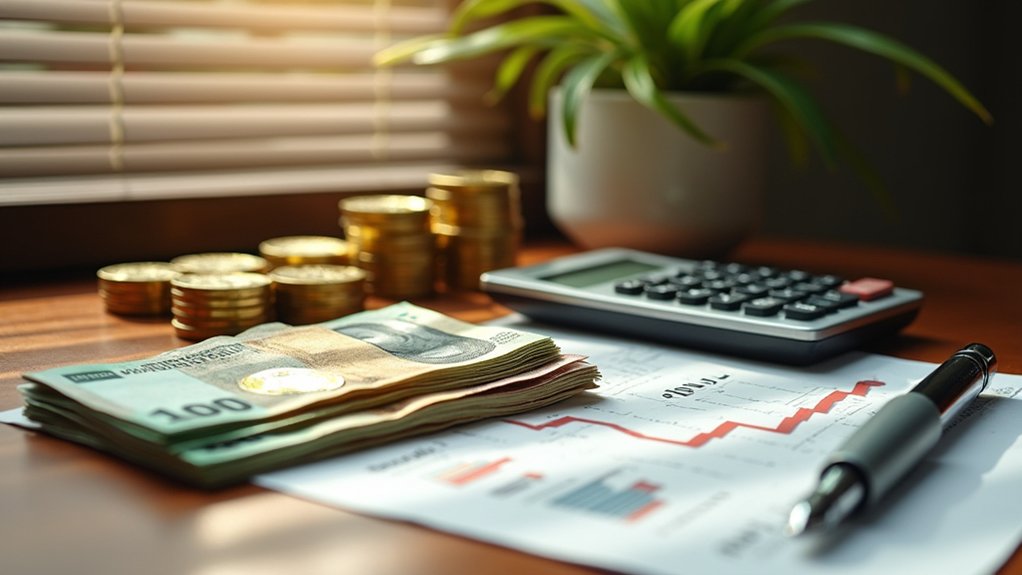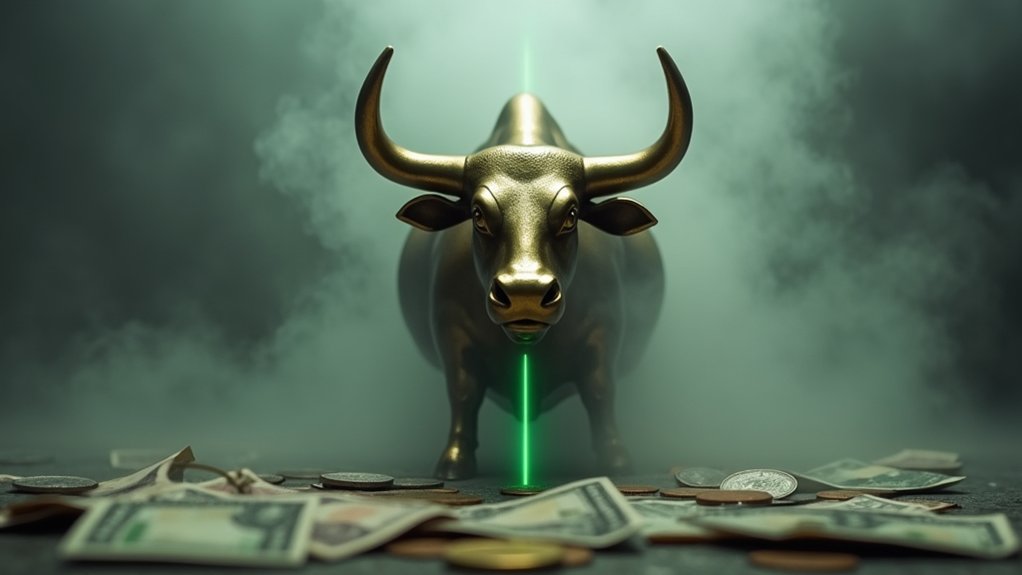Most forex traders lose money because they treat currency trading like a lottery ticket instead of a serious financial market. They skip education, ignore risk management, and overlever their accounts with ridiculous position sizes—sometimes risking half their capital on a single trade. Poor discipline kicks in next: revenge trading after losses, panic selling during drawdowns, and holding losers too long while cutting winners too early. Add overtrading, skipping stop-losses, and ignoring economic news, and accounts evaporate fast. The patterns behind these failures reveal exactly what separates the rare winners from the wreckage.
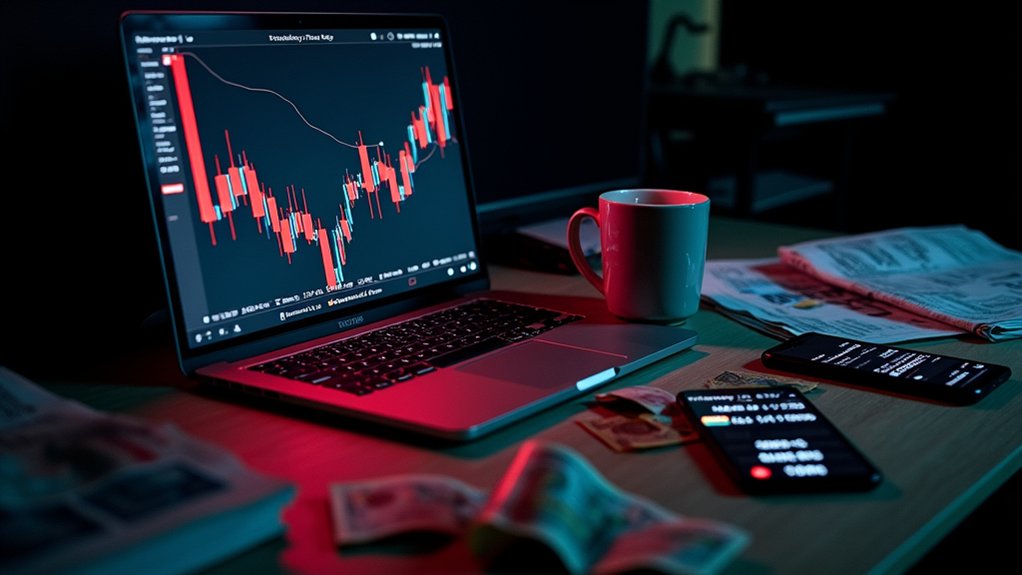
Across Nigeria, Kenya, South Africa, and every corner of the continent, roughly 90% of beginner forex traders lose their capital within months of starting. That's not a typo. Nine out of ten people who open trading accounts walk away lighter in the pocket, often much lighter. The dream of quitting the day job and trading from a laptop? It dies fast for most.
Nine out of ten beginner traders across Africa lose their capital within months—the laptop dream dies fast.
The single biggest killer is ignorance. Plain and simple. Traders jump in treating forex like a lottery ticket, not a financial market that requires actual knowledge. They skip the boring parts—fundamental analysis, technical analysis, economic calendars—and go straight to clicking buy and sell buttons. No demo account (Official Site 🔗) practice. No understanding of what moves currency pairs. Just hope and a YouTube video or two. This approach works about as well as you'd expect.
Then there's risk management, or the complete lack of it. Many African traders don't use stop-loss orders. Others set them so tight or so loose they might as well not exist. Overleveraging is rampant. Brokers happily offer 1:500 leverage, and traders take it, not realizing that magnifying gains also magnifies losses. One bad trade with excessive leverage can wipe out weeks of gains. Position sizing? Forget it. People risk 20%, 30%, sometimes half their account on a single trade. Madness. Experts consistently recommend never risking more than 1–2% of total capital on any single trade, but this fundamental rule gets ignored by the majority. Without appropriate position sizing, even traders with winning strategies eventually deplete their accounts.
Emotions run the show more often than strategy does. Fear makes traders close winning positions too early. Greed keeps them in losing trades too long. Panic selling during a drawdown. Impulsive buying when things look hot. Revenge trading after a loss, trying desperately to “win it back.” The market doesn't care about your feelings, but your feelings will destroy your account. Traders commonly increase position sizes after winning streaks, which sets them up for even larger subsequent losses. Early winning streaks can create false confidence and prevent traders from developing the discipline they actually need.
Overtrading finishes off what emotions started. Traders sit glued to charts, entering trades without clear setups, racking up transaction costs and slippage. Patience isn't sexy. Waiting for high-probability opportunities feels like doing nothing. So they trade, and trade, and trade until the account bleeds out. The problem often stems from trading beyond one's risk tolerance or straying from a well-defined strategy.
Most traders also ignore the bigger picture. Economic news from central banks, policy shifts, geopolitical tensions—these move markets violently. But many African traders focus only on candlestick patterns and indicators, then act shocked when a surprise interest rate decision in the US or Europe flips their trade upside down. New traders often make the mistake of choosing inappropriate timeframes that don't match their trading style or available time commitment. The psychological pressure of Forex trading amplifies these mistakes, as traders struggle to maintain discipline under constant market stress.
And hardly anyone keeps a trading journal. No records mean no learning. Mistakes get repeated endlessly because there's no honest accounting of what went wrong. Without tracking performance, traders can't spot their behavioral patterns or refine their approach. They just keep losing until the money runs out.
Common Questions
Can Nigerian Traders Use Local Banks to Deposit With International Forex Brokers?
Yes, Nigerian traders can deposit using local banks with several international forex brokers. HFM, FXTM, Exness, and Octa all accept NGN deposits via local bank transfers. It's convenient, fast, and skips conversion fees. Some even allow withdrawals back to Nigerian banks.
But here's the catch: the CBN isn't exactly predictable. Payment channels can get restricted without warning. So what works today might not work tomorrow. Always have a backup funding method ready.
Are Forex Brokers Regulated in Kenya Safer Than Offshore Unregulated Brokers?
CMA-regulated brokers in Kenya are markedly safer than offshore unregulated ones. Period.
They must segregate client funds, maintain 30 million shillings capital adequacy, keep physical offices in Nairobi, and submit to regular audits. Unregulated brokers? Zero obligation to separate your money from theirs. If they collapse, your cash vanishes.
CMA isn't perfect—it's yellow-tier, not green like FCA—but it beats the Wild West of unregulated platforms where Kenyan traders have basically no protection.
How Does Unstable Electricity in Ghana Affect Day Trading Success Rates?
Unstable electricity in Ghana obliterates day trading consistency. Load shedding hits during market hours, killing internet and disconnecting traders mid-position. The 700 MW deficit means sudden blackouts are routine, not rare. Orders don't fill, stops don't trigger, and positions hemorrhage value while screens stay dark.
Tariffs jumped 142% since 2020, making backup power brutally expensive. Peak demand surges 9.2% year-over-year while the grid can't keep pace. Result? Ghanaian day traders face losses unrelated to market skill—just power infrastructure failure.
Which African Currencies Are Most Difficult to Trade Due to Liquidity Issues?
The Nigerian Naira, Ghanaian Cedi, and Zimbabwean Dollar top the nightmare list. Angola's Kwanza and Ethiopia's Birr aren't far behind. These currencies suffer from brutal USD shortages, pathetic reserve levels, and exchange controls that choke liquidity. Bid-ask spreads blow out. Parallel markets thrive because official channels can't deliver. Limited correspondent banking cuts them off globally. Volatility spikes without warning. Frankly, most brokers won't even touch them—there's simply no depth.
Do South African Traders Lose Less Money Than Traders in Other Countries?
No. South African traders don't lose less—they're part of the same brutal statistics hitting retail traders worldwide.
Roughly 90% lose money long-term, and there's zero credible data showing South Africans buck that trend.
Sure, the country has some high-profile success stories and leads Africa with around 190,000 traders.
But individual wins don't change the math. Most South African retail participants bleed capital just like everyone else.
The losses are consistent, the hype is loud.
